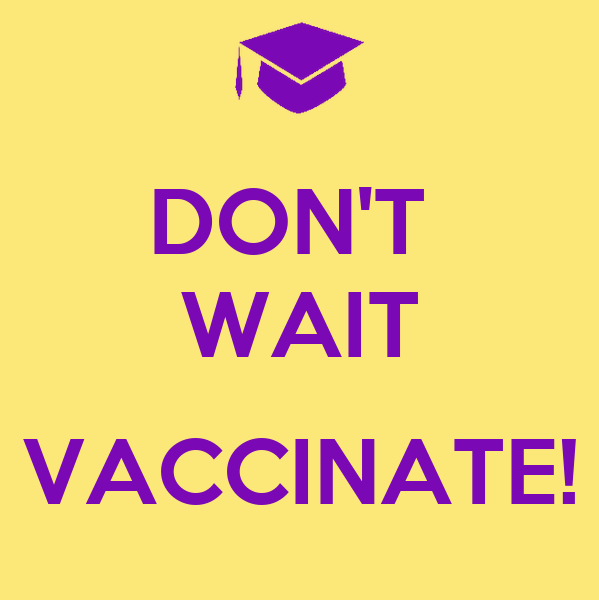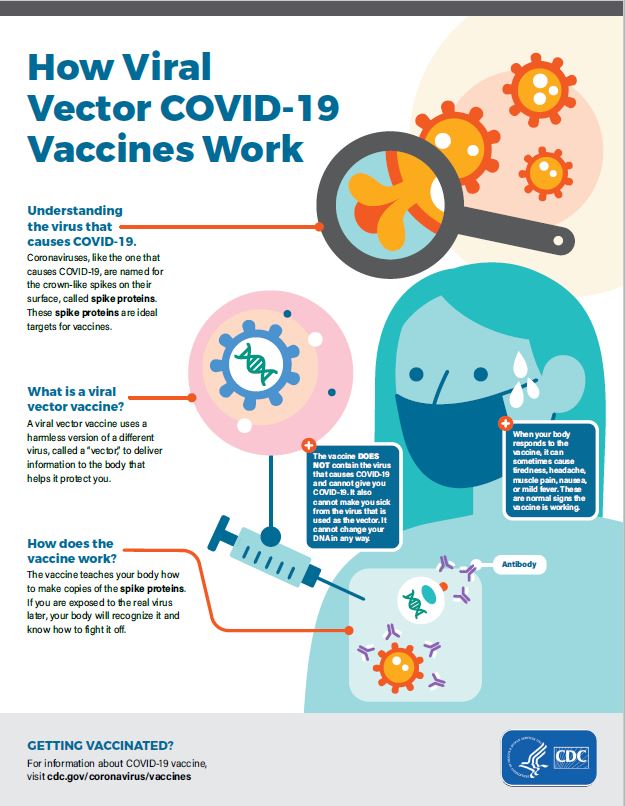
COVID-19 Vaccine Information
Trinity’s Covid-19 Vaccine Update
Covid-19 Vaccine information
As previously announced, Trinity will require all students, faculty, and staff to be fully vaccinated against Covid-19 prior to being on campus. Students – please use the form available at https://discover.trinitydc.edu/health/covid-19-vaccine-verification/ to provide proof of full vaccination by submitting your information and an image of your vaccine card. Alternatively, you can provide a copy in person to the Health and Wellness Center (Main 461) or Dr. Karen Gerlach (Main 228); email a copy to healthcenter@trinitydc.edu or gerlachk@trinitydc.edu; or fax it to 202-884-9614. If you require a religious or medical exemption, please provide notice on the form, so that we may follow-up with you regarding your request. Faculty and Staff – please provide your verification directly to Tracey Prince Ross in Human Resources.
Vaccine Appointments and Scheduling: All persons 5 and older are now eligible for free vaccines. See the links below for information on how to schedule your vaccine appointment: Washington, D.C.; Maryland; Virginia; CDC Vaccine Finder – All States.
Truth vs Myth
Now that there are authorized and recommended COVID-19 vaccines in the United States, accurate vaccine information is critical and can help stop common myths. It can be difficult to know which sources of information you can trust, so before considering vaccine information on the Internet, check that the information comes from a credible source and is updated on a regular basis. Learn more about finding credible vaccine information. The website of the Centers for Disease Control (CDC) is the best comprehensive resource for information.
Watch this video for an overview of COVID-19 Vaccine Facts and Myths from Cedars-Sinai Newsroom. https://www.cedars-sinai.org/newsroom/the-truth-about-the-covid-19-vaccines/
FAQ’s about COVID-19 Vaccines
1. Should I get vaccinated for COVID-19?
We strongly recommend you get vaccinated. The vaccine will help protect you from getting COVID-19. If you still get infected after you get vaccinated, the vaccine may prevent serious illness. By getting vaccinated, you may also help protect people around you.
2. Can the vaccine give me COVID-19?
No. None of the COVID-19 vaccines currently authorized for use or in development in the United States use the live virus that causes COVID-19. However, it typically takes a few weeks for the body to build immunity after vaccination. That means it’s possible you could be infected with the virus that causes COVID-19 just before or just after vaccination and get sick.
3. If I already had COVID-19 and recovered, do I still need to get vaccinated?
Yes. CDC recommends that you get vaccinated even if you have already had COVID-19, because you might become infected more than once. While you may have some short-term antibody protection after recovering from COVID-19, we don’t know how long that protection will last.
4. Can my child get vaccinated for COVID-19?
Not yet. Studies are now underway with COVID-19 vaccines that can be recommended for children younger than age 16.
5. Is it safe to get a COVID-19 vaccine if I have an underlying medical condition?
Yes. COVID-19 vaccination is especially important for people with underlying health conditions like heart disease, lung disease, diabetes, or obesity. People with these conditions are more likely to get very sick from COVID-19.
6. Is it safe to get a COVID-19 vaccine if I have allergies?
For most people with allergies, yes. However, if you have ever had a severe allergic reaction to any ingredient in a COVID-19 vaccine, you should not get that vaccine or any COVID-19 vaccine. We can find the list of ingredients on CDC’s website together.* If you have had an immediate allergic reaction of any severity to other vaccines or injectable therapies, your doctor can help you decide if it is safe for you to get vaccinated. You may still get vaccinated if you have severe allergies to oral medications, food, pets, insect stings,
latex, or environmental irritants like pollen or dust.
7. Is it better to get natural immunity to COVID-19 rather than immunity from a vaccine?
No. COVID-19 is new and so are the vaccines to prevent it. We don’t know how long protection lasts for those who get infected or for those who are vaccinated. What we do know is that COVID-19 has caused very serious illness and death for a lot of people. If you get COVID-19, you also risk giving it to loved ones who may get very sick. Getting a COVID-19 vaccine is a safer choice.
8. Why do I need two COVID-19 shots?
Currently authorized vaccines and most vaccines under development require two doses of vaccine. The first shot helps the immune system recognize the virus, and the second shot strengthens the immune response. You need both to get the best protection that lasts longest.
9. Will the shot hurt or make me sick?
The vaccine will not make you sick. There may be side effects, but they should go away within a few days. Possible side effects include a sore arm, headache, fever, or body aches. This does not mean you have COVID-19. These side effects are signs that the vaccine is working to build immunity. If they don’t go away in a week, or you have more serious symptoms, call your doctor.
10. I am pregnant. Is it safe for me to get the COVID-19 vaccine?
Based on what we know about how these vaccines work, experts believe they are unlikely to pose a risk for pregnant women. However, there is limited information about the safety of COVID-19 vaccines during pregnancy. You may choose to get vaccinated if you are part of a group that is recommended for COVID-19 vaccine. Talk through this decision with your doctor.
11. I am breastfeeding. Is it safe for me to get the COVID-19 vaccine?
Based on what we know about how these vaccines work, experts don’t think that COVID-19 vaccines pose risks to breastfeeding babies. However, there are no safety data related to COVID-19 vaccination and breastfeeding. You may choose to get vaccinated if you are part of a group that is recommended for COVID-19 vaccine. Talk through this decision with your doctor.
12. Are there long-term side effects from the COVID-19 vaccine?
Because all COVID-19 vaccines are new, it will take more time and more people getting vaccinated to learn about very rare or possible long-term side effects. At least 8-weeks of safety data were gathered in the clinical trials for all the authorized vaccines, and it’s unusual for vaccine side effects to appear more than 8 weeks after vaccination.
13. How do I know if the COVID-19 vaccine is safe?
All COVID-19 vaccines were tested in clinical trials involving tens of thousands of people to make sure they meet safety standards and protect adults of different ages, races, and ethnicities. There were no serious safety
concerns. These trials were very similar to trials done for other licensed vaccines, but were done more quickly due to the urgent need to reduce illnesses during the pandemic. CDC and the FDA will keep monitoring the vaccines to look for safety issues after they are authorized and in use.
14. Do I have to continue to wear a mask and avoid close contact with others after I have been vaccinated?
Yes, it is important to keep covering your mouth and nose with a mask, washing hands often, and staying at least 6 feet away from others even after you have been vaccinated. We don’t yet know if the vaccine reduces transmission of the virus. Also, there is not enough information currently available to say if or when CDC will stop recommending that people wear masks and avoid close contact with others to help prevent the spread of the virus that causes COVID-19. Experts need to understand more about the protection that COVID-19 vaccines provide before making that decision. Other factors, including how many people get vaccinated
and how the virus is spreading in communities, will also affect this decision.
Please view the educational resources about Covid-19 and the vaccines. The website of the Centers for Disease Control (CDC) is the best comprehensive resource for information.
